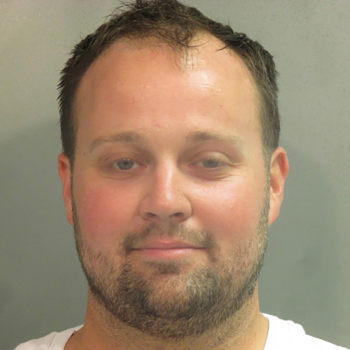A year ago, administrators from an Ontario boarding school were found liable for systematic abuse they visited on decades of students under the guise of behavioral discipline.
This week they’ve unveiled the shocking strategy behind their appeal: They’re claiming they had no idea that their actions could cause lasting damage.
It’s not quite “just following orders,” but it’s certainly up there in the pantheon of despicable excuses for inflicting misery on fellow human beings.

The logic behind the disciplinary structure at Grenville Christian College, circa 1973-1997, is relatively simple: All people are sinners, and one primary role of education is to make students recognize and repent their inherent sinfulness. As a result, students regularly experienced verbal degradation and public humiliation as well as various forms of corporal punishment. Educators practiced exorcism and, in the case of students they perceived as gay, conversion therapy.
The harrowing testimony of former students and teachers led Superior Court Justice Janet Leiper to find for the plaintiffs, labeling the school’s practices “abusive, authoritarian, and rigid.”
Her finding rested on two central assertions: that the school’s disciplinary actions against students were abusive, and that the damage done was “reasonably foreseeable” at the time.
Grenville’s lawyer Paul Pape admits that nobody could dispute the first assertion after hearing the “emotionally evocative” testimony, but he calls the second one into question. Sure, current expert witnesses could point to the college’s methods as harmful, he argued in Tuesday’s hearing. But educators at the time could not have known that their actions were damaging.
Leiper committed a “major error,” he contended, by drawing conclusions based on our current definition of abuse without any proof that people in the 1970s would have understood it that way.
But Loretta Merritt, a lawyer for the plaintiffs, said the students’ legal team proved that the extreme abuse was out of step with the standards and practices of the time. And even if administrators did not predict lasting psychological damage, they saw evidence right before their eyes that the students were suffering at the time. As reported by Timothy Sawa for CBC News:
Merritt told the court that staff at the school had several warnings that students were being harmed by their actions.
She said students were running away or asking to be taken out of school, parents repeatedly wrote to the school expressing concerns about their methods, students were crying during lectures about sexuality and during ‘light sessions’ and one student attempted suicide while attending the school.
“The defendants can’t say it wasn’t foreseeable that their behavior or actions would cause harm when they saw the harm their actions were causing,” Merritt said.
“I suggest they did know… and they did it anyway.”
That suffering is, of course, the point. The school’s entire philosophy was based on it, and it twisted that evidence of harm into proof that the administrators were on the right track.
When you’re starting from the assumption that everybody’s sinful, cruelty becomes mercy. The finite suffering of the here-and-now is better than infinite suffering in the hereafter. Anything that could teach the students to better obey God (as understood by the school’s administrators) could be justified as virtuous. When the stakes are eternal, the ends always manage to justify the means.
Put simply, the students’ expressions of pain (rebelling, running away, complaining to parents) didn’t read as evidence of harm when viewed through the lens of a twisted religious ideology. They read as evidence of sin… and in their turn, probably served to justify more abuse.
Perhaps instead of starting from the assumption that everybody is sinful, they would do well to take some advice from their own book: “Do to others what you would have them do to you.”
(Image via Shutterstock. Thanks to @kensmith_26 for the link)




It’s Moving Day for the Friendly ..."
It’s Moving Day for the Friendly ..."
It’s Moving Day for the Friendly ..."
It’s Moving Day for the Friendly ..."